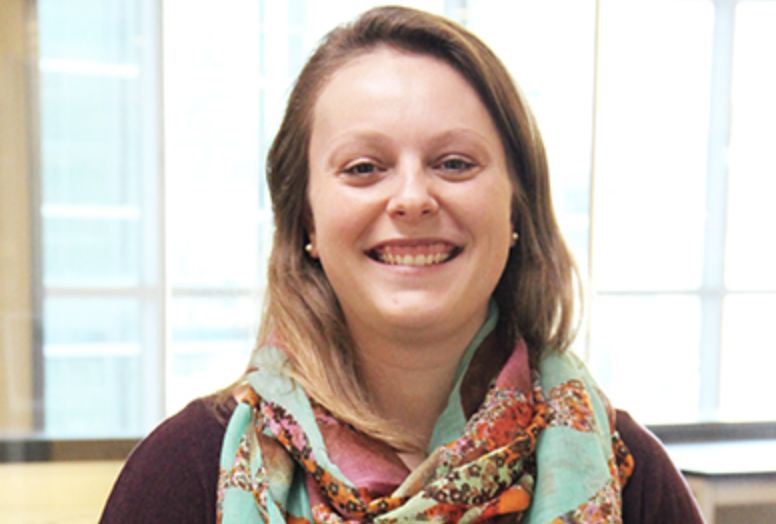International Women’s Day Q&A Spotlight on Fiona Whelan

We’re proud to recognize so many women at the IIDR promoting women in STEM fields including, Fiona Whelan. In her International Women’s Day Q&A spotlight, Fiona, IIDR trainee and PhD candidate, talks about her research on understanding the effect cystic fibrosis has on the lung microbiome, why science needs women, and her involvement in a Women in STEM Mentorship Initiative.
What does your research focus on?
My PhD research in Mike Surette’s lab focuses on understanding the effect that cystic fibrosis has on the lung microbiome. Cystic fibrosis is a genetic disease that, among other things, increases the viscosity of mucus within the lung, making it hard for the individual to clear bacteria from this environment. This leads to chronic lung infections with bacteria such as Pseudomonas aeruginosa and affects the quality of life for those living with cystic fibrosis.
What are the real world applications of your research?
I chose this specific project with Mike because of how close it interfaced with the clinic and the potential impact this research could have on people with cystic fibrosis. It is important that we understand how these chronic bacterial infections drive cystic fibrosis disease.
What do you love most about being an IIDR trainee?
I enjoy how close-knit the Institute is. The numerous events, both formal and informal, throughout the year really provide a chance to get to know our colleagues and what research is being conducted in the IIDR.
What is your proudest accomplishment in your academic career thus far?
Being awarded the Michael Kamin Hart Memorial Scholarship last year was a huge accomplishment for me. This award means so much because it honours the memory of a previous IIDR trainee who excelled in the laboratory and in leadership. Further, this award is important because it is awarded by the colleagues that I work side-by-side with in the IIDR.
What is your advice for aspiring female scientists?
Stick with it – science is fun! I feel so lucky to be able to research interesting questions every day. Science is always changing and can be anything from microscopy to plant biology to computer science.
Why should women and girls be interested in pursuing a career in science?
Because we need you! The best and most difficult questions in science often need to be researched and questioned in a variety of ways before the answers are found. The best way to do this is to have a variety of people from different backgrounds and educational paths to think about and research these questions together.
Do you have a female mentor? What are the benefits of having a mentor?
I am blessed to have many female mentors who have been instrumental in my career so far. Mentors are very important; they can help you push through feelings of imposter syndrome, and can often help you gain a better perspective of the big picture which can be difficult. I would say that having a mentor is instrumental. If you don’t have one, there are many resources online to help pair mentors to mentees. Or, reach out to someone you know!
The theme for International Women’s Day is “Be Bold for Change” which encourages women to declare what bold action they will take to specifically help drive gender parity. What do you do currently, or what will you do to “Be Bold for Change” in 2017?
I recently signed up to be a mentor with a local Women in STEM Mentorship Initiative and was paired with my first mentee!
Promoting women in STEM fields has been something that I’ve been passionate about since my own undergraduate experiences in computer science. In 2013, women earned half of the degrees in biological sciences but less than 20% of the degrees were in computer science and engineering. I will “be bold” in promoting an increase in these statistics in 2017 and in the future!
Look out for more Q&A spotlights on women at the IIDR throughout March and learn about their fascinating research, achievements, advice for women in science and what they’re doing to #BeBoldForChange in 2017.
NewsRelated News
News Listing

McMaster Health Sciences ➚
Overcoming resistance: McMaster researchers find new utility for old antibiotics
News
January 6, 2025

December 19, 2024


